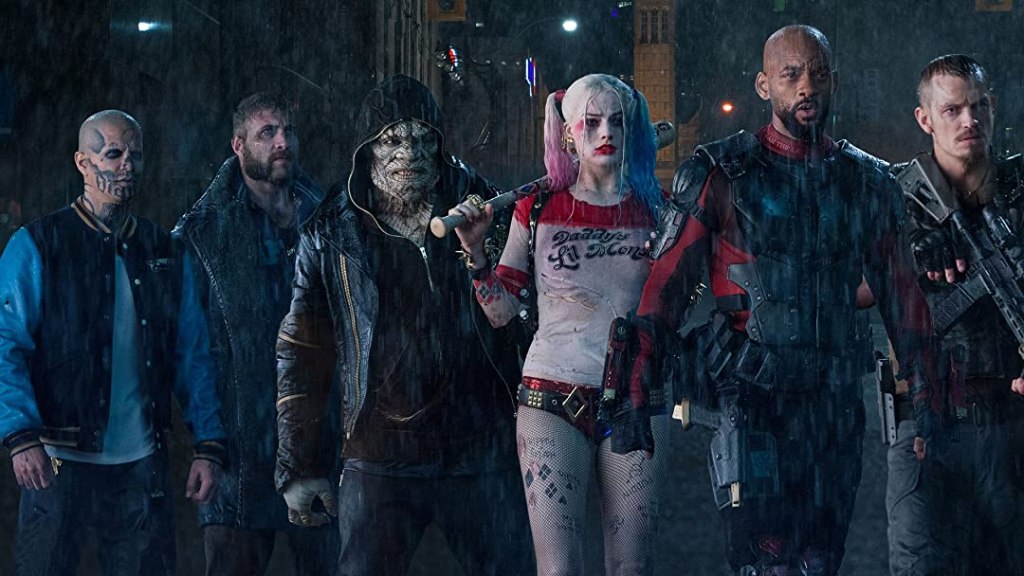At this point, it’s difficult to argue that hip-hop and RnB aren’t the number one genres of music worldwide. Every year since 2017, they have outsold rock and pop in the US (the previous holders of the crown).
Naturally, this means that hip-hop seeps its way into other areas of pop culture – most obviously games, TV, and movies. The GTA series has been famous for its embrace of hip-hop culture and music and sports games like the Fifa series and NBA2K obviously embraced the genre. It’s so common that coming up with examples feel unnatural. Even films about Hip-Hop have become commonplace with Straight Outta Compton, All Eyez on Me, and 8 Mile telling the stories of the genre’s greats (not to disregard Boyz n the Hood or documentaries that have recently exploded in number).
The Ad Album
From the perspective of a studio simply trying to profit off a movie, the most obvious approach to including hip-hop in a soundtrack is to make an album of hits to advertise the movie that will then, after the movie is out of cinemas, keep it in the public mind. If that was the goal, the Suicide Squad album nailed it and the same can be said for Southpaw and Black Panther (even some DCEU movies like Justice League have some songs that still come up in my library every once and a while). These albums/songs crop up in my mind far more often than the films themselves.
Using popular music in film is nothing new – Prince made the soundtrack of Tim Burton’s Batman and Tarantino is famous largely for the soundtrack of his movies. It is, however, a relatively new phenomenon that the soundtrack songs are grouped as albums for the films and become hits for months before a film’s release. I remember getting excited for Suicide Squad purely based on the music released ahead of time (though unfortunately then getting totally disappointed by the film itself) and seeing Denzel Curry, DUCKWRTH, Post Malone, Nicki Minaj, and Jaden on the Spiderverse album and thinking there was no way this couldn’t be a crazy movie.
The most recent example of this is netflix’s Yasuke. The whole soundtrack is by Flying Lotus with features from Denzel Curry and Thundercat. Even listening to the album when it came out, it was absolutely brilliant.
What Went Wrong With Yasuke?

The simplest element of Yasuke‘s failure in relation to music was that it simply didn’t fit each scene. The energy of each track didn’t mesh properly with the action of the scenes – though the rhythm and general style of the music felt ok, the sound selection and energy always just felt majorly off, taking you out of a world that, thanks to disappointing animation and sketchy storytelling, was already too hard to engage with. This is actually the exact same issue that Suicide Squad deal with.
The second issue with the Yasuke album is that the whole thing seemed far too targeted at making a hip-hop album with Japanese sounds and it felt like Flying Lotus had simply forgotten that it is supposed to be a soundtrack, not a self-sufficient album. Every time the music comes in, it feels like it is asking to be the main focus of the scene, making the scene more of a music video than the other way around.
Finally, and this is in no way at fault of the music but rather the way in which it seems to have been treated by the director or studio. It seems like the show was made, as usual, almost to completion before the soundtrack was started but as the show did not turn out to be as good as the producers were expecting, it feels like they just found the most exciting option for a soundtrack and thought that it would save the show. This, again, feels like the same intention behind the Suicide Squad soundtrack. Music can make a film a masterpiece but it cannot save a bad project.
Stop Making It Special

The most successful uses of hip-hop in films and TV are those that don’t act as if it were something extraordinary. Bad Boys II, Fast and Furious, and Into The Spiderverse all incorporated the music into the film because it was what was the soundtrack of the lives of the characters. Even Django embraced hip-hop simply because it fit with the personality type of the protagonist. With the failures like Suicide Squad and Yasuke, the inclusion of hip-hop is clearly concept driven, not character driven and since hip-hop is purely character driven and intrinsically authentic as a genre, it just feel fake and out of place if it comes from a position of tactics instead of feeling.
Put simply: hip-hop is a genre of self expression and honesty and if its use comes from a place of anything but that, it doesn’t connect with the viewer.
A Glorious Exception

An interesting recent incorporation of hip-hop in a film that otherwise does not seem like it lends itself to the genre was Travis Scott’s appearance on the Tenet soundtrack. Aside from the obvious The Plan, on which he featured as main vocals, Travis’s vocals can be heard throughout the soundtrack that, purely by nature of Ludwig Göransson’s career, has a lot of subtle hip-hop elements in. Again though, these elements come from a place of expression for Göransson and are clearly not requested as a side thought by a director appealing to a wider audience.
I hope you liked this post and be sure to let us know what you think in the comments. Please check out more of our content at screenhub.blog.


One thought on “Yasuke’s Missed Opportunity: Where Does Hip-Hop Belong In Cinema? – ScreenHub Entertainment”